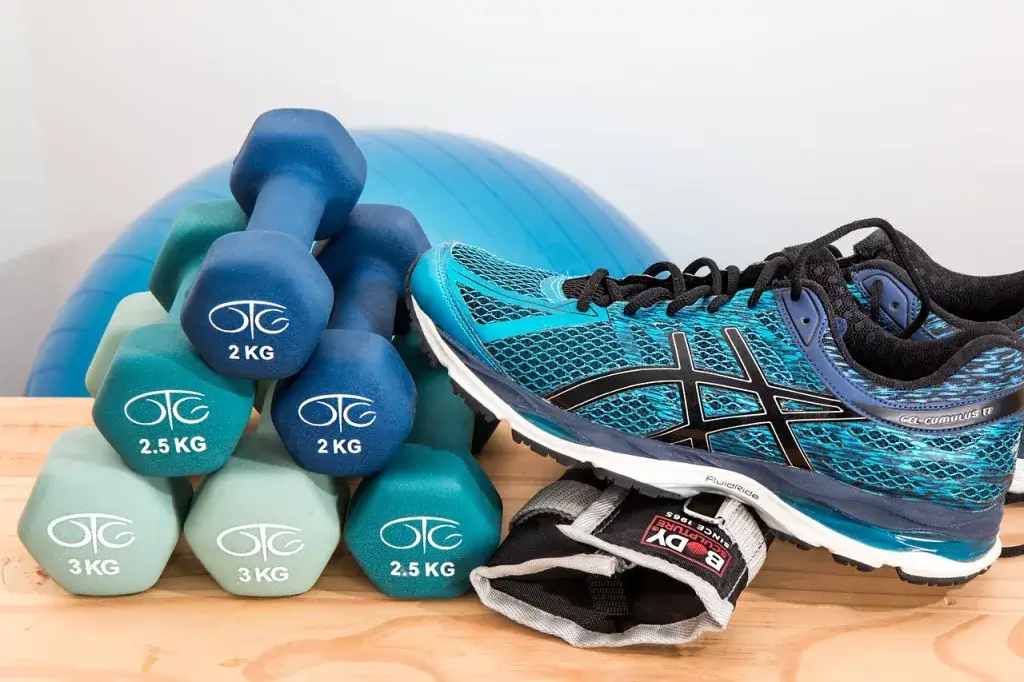Mastering Motivation: Proven Strategies To Stay Committed To Your Fitness Goals
Are you struggling to stay committed to your fitness goals? Look no further! In this article, we will explore proven strategies that will help you master motivation and stay on track towards achieving your fitness goals. Whether you’re just starting out on your journey or have hit a plateau, these strategies will provide you with the tools and encouragement needed to stay committed and reach new heights in your fitness journey. Say goodbye to excuses and hello to a healthier, happier you!

Finding Your Why
Connecting with Your Purpose
When it comes to achieving any goal, having a strong sense of purpose is vital. Connecting with your purpose means understanding the deeper reasons behind why you want to pursue fitness and live a healthy lifestyle. Ask yourself what truly motivates you and what you hope to achieve through your fitness journey. Is it to improve your overall well-being, gain more energy, or boost your self-confidence? By identifying your underlying reasons, you create a powerful foundation for your commitment to fitness.
Setting Meaningful Goals
Setting meaningful goals is the next step in finding your why. It’s important to establish objectives that align with your purpose and reflect your personal aspirations. Whether it’s losing a certain amount of weight, improving your strength, or completing a marathon, make sure your goals excite and inspire you. Aim for a balance between challenging and attainable goals, as this will help maintain your motivation throughout your fitness journey.
Identifying Your Values
Understanding your values is crucial in staying committed to your fitness goals. Take the time to reflect on what truly matters to you in life and how living a healthy lifestyle aligns with those values. For example, if you prioritize family and want to be an active and present role model for your children, embracing fitness becomes a means of living out that value. By aligning your goals with your values, you create a sense of purpose and intrinsic motivation that will keep you going, even when faced with obstacles.
Creating a Positive Environment
Finding Supportive Peers
Surrounding yourself with supportive peers can greatly enhance your commitment to fitness. Seek out individuals who share similar goals and values, and who encourage and inspire you to stay on track. Join fitness classes, find workout buddies, or connect with like-minded individuals online. Having a strong support system not only makes your fitness journey more enjoyable, but it also provides you with much-needed accountability and motivation to keep pushing forward.
Designing a Motivating Workout Space
Creating a motivating workout space is essential in maintaining your commitment to fitness. Whether you have a dedicated home gym or a corner of your living room, make it a place that inspires and energizes you. Customize the space with motivational quotes, vibrant colors, and equipment that you enjoy using. Consider incorporating elements that make you feel good, such as natural light, plants, or your favorite music. By designing a space that you look forward to being in, you’ll be more inclined to stick to your workout routine.
Eliminating Negative Influences
To stay committed to your fitness goals, it’s important to identify and eliminate negative influences in your life. This may involve distancing yourself from people who bring you down or constantly undermine your efforts. Surround yourself with individuals who support your goals and uplift your spirits. Additionally, limit your exposure to negative media or social media accounts that promote unhealthy habits or unrealistic body standards. Creating a positive environment free from negativity allows you to focus on your own progress and maintain your motivation.
Building Consistency
Establishing a Routine
Consistency is key in achieving lasting results. Establishing a routine that incorporates regular exercise and healthy habits is crucial for long-term success. Find a workout schedule that fits your lifestyle and commit to it. Whether it’s waking up early to exercise before work or dedicating a specific time in the evening for physical activity, consistency is key. Make your fitness routine a non-negotiable part of your day, just like eating or sleeping. By creating a consistent routine, you eliminate decision fatigue and make exercise a natural part of your life.
Tracking Your Progress
Tracking your progress is a powerful way to stay committed to your fitness goals. Keep a record of your workouts, measurements, and achievements to visually track your progress over time. Celebrate your milestones, no matter how small they may seem. Use technology tools such as fitness apps or wearable devices to monitor your progress and provide you with objective data. Seeing how far you’ve come can be highly motivating and serves as a reminder of the progress you’re making towards your goals.
Rewarding Yourself
Rewarding yourself along the way is an effective way to build consistency. Set up a system of rewards that acknowledges your hard work and dedication. These rewards can be both short-term and long-term, depending on your goals and preferences. Treat yourself to a massage, buy yourself new workout gear, or enjoy a day off from exercise. It’s important to note that the rewards should be non-food treats to avoid associating food with motivation. Celebrating your progress and achievements reinforces positive behavior and strengthens your commitment to your fitness journey.
Setting Realistic Expectations
Understanding Your Body’s Limitations
In order to stay committed to your fitness goals, it’s crucial to understand and accept your body’s limitations. Each person’s body is unique, and progress may vary from one individual to another. Avoid comparing yourself to others and focus on your own journey. Listen to your body’s signals and make adjustments accordingly. Overworking yourself or setting unrealistic expectations can lead to burnout and demotivation. Set goals that are challenging yet attainable, taking into account your current fitness level and any physical limitations you may have.
Breaking Down Long-Term Goals
Long-term goals can often feel overwhelming and hard to sustain motivation for.
To stay committed, break down these goals into smaller, more manageable milestones. For mastering motivation: proven strategies focus on the progress you make each week or month, rather than solely on the ultimate end result. By celebrating these smaller achievements, you’ll stay motivated and reinforce positive behaviors. Breaking down long-term goals also provides you with a clearer roadmap and allows you to adjust your approach if needed.
Focusing on Progress, Not Perfection
It’s important to shift your mindset from seeking perfection to focusing on progress. Perfection is an unattainable goal, and striving for it can lead to frustration and a lack of motivation. Instead, focus on the progress you make, no matter how small it may seem. Celebrate each step forward and learn from any setbacks along the way. Embrace the journey and the lessons it brings, knowing that every effort you make contributes to your overall growth and commitment to your fitness goals.

Developing a Growth Mindset
Embracing Challenges
Developing a growth mindset involves embracing challenges as opportunities for growth. Instead of avoiding difficult exercises or comparing yourself to others, approach challenges with a positive mindset. View them as chances to learn, improve, and become stronger. Embrace the discomfort that accompanies growth and push yourself beyond your comfort zone. By adopting a growth mindset, you’ll see challenges as stepping stones towards your goals rather than obstacles that hinder your progress.
Learning from Setbacks
Setbacks are a natural part of any fitness journey. Instead of letting them discourage you or derail your commitment, view setbacks as valuable learning experiences. Analyze what went wrong, identify areas for improvement, and adjust your approach accordingly. Remember that setbacks don’t define your progress or determine your future success. Use them as opportunities to grow and become more resilient. The ability to bounce back from setbacks is a key component of staying committed to your fitness goals.
Believing in Your Potential
Developing a growth mindset also involves believing in your own potential. Recognize that you have the capacity to learn, grow, and achieve your fitness goals. Cultivate self-belief and positive affirmations that reinforce your commitment. Surround yourself with individuals who believe in you and support your aspirations. By having faith in your abilities and nurturing a positive self-image, you’ll be better equipped to overcome challenges and stay committed to your fitness journey.
Utilizing Goal-Setting Techniques
SMART Goals
Utilizing the SMART goals framework is a proven technique for setting effective goals. SMART stands for Specific, Measurable, Attainable, Relevant, and Time-bound. When setting your fitness goals, ensure they meet these criteria. Instead of a vague goal like “get in shape,” make it more specific, such as “run a 5k race in three months.” Make your goals measurable by including specific metrics, like lifting a certain weight or improving your endurance by a certain percentage. Ensure your goals are attainable and relevant to your overall purpose and values. Finally, set a deadline or timeline to create a sense of urgency and focus.
Visualization
Visualization is a powerful technique that can enhance your commitment to your fitness goals. Take the time to visualize yourself achieving your goals and experiencing the outcomes you desire. Close your eyes and imagine the sensations, emotions, and successes you’ll experience along the way. Visualize the steps you need to take and the effort you’ll put in to reach your goals. By creating vivid mental images of your success, you’ll reinforce a positive mindset and increase your motivation to stay committed.
Creating Action Plans
To transform your goals into reality, create action plans that outline the specific steps you need to take. Break down your goals into smaller, actionable tasks and assign deadlines to each one. Creating a clear roadmap with tangible actions makes your goals more attainable and less overwhelming. Prioritize the tasks and schedule them into your routine. Regularly review and adjust your action plans as needed. By turning your goals into manageable actions, you’ll stay committed and make steady progress towards achieving them.

Finding Inner Motivation
Harnessing Intrinsic Rewards
For mastering motivation: proven strategies finding inner motivation is key to staying committed to your fitness goals. One way to cultivate this internal drive is to focus on intrinsic rewards. Instead of solely relying on external factors like weight loss or external praise, find joy and satisfaction in the process itself. Appreciate the benefits of physical activity, such as increased energy or improved mood. Take pleasure in the sense of accomplishment after completing a challenging workout. By focusing on intrinsic rewards, you’ll tap into a deeper level of motivation that keeps you committed even when external factors waver.
Tapping into Personal Drive
Tapping into your personal drive involves understanding what truly motivates you and what fuels your passion for fitness. Take the time to reflect on what aspects of physical activity bring you joy and fulfillment. Is it the feeling of strength and accomplishment? The opportunity to challenge yourself and overcome obstacles? By understanding your own personal drivers, you can tap into the passion and enthusiasm that keep you committed to your fitness journey.
Embracing the Joy of Movement
Finding joy in movement is a powerful way to stay committed to your fitness goals. Instead of viewing exercise as a chore or punishment, shift your mindset to embrace the pleasure and happiness that come from physical activity. Seek out activities that you genuinely enjoy and look forward to. Whether it’s dancing, hiking, or playing a sport, find movement that brings you joy. By embracing the joy of movement, you’ll be more motivated to incorporate exercise into your routine and maintain your commitment to a healthy lifestyle.
Building Accountability
Finding an Accountability Partner
Building accountability is essential in staying committed to your fitness goals. Find an accountability partner who shares your aspirations and is committed to their own fitness journey. This can be a friend, family member, or even a professional coach. Set up regular check-ins to discuss your progress, challenges, and goals. Having someone to report to and who holds you accountable increases your commitment and helps you stay on track. It also provides you with a support system and someone to celebrate your achievements with.
Joining Fitness Communities
Joining fitness communities is another effective way to build accountability. Connect with like-minded individuals who are on a similar path and share your goals and values. This could be through online groups, fitness classes, or local organizations. Engage in discussions, seek advice, and share your own experiences. Being part of a community creates a sense of belonging and support that can greatly enhance your commitment to your fitness journey. It also provides you with additional resources and inspiration to stay motivated.
Tracking Your Commitment
Tracking your commitment is a practical strategy to hold yourself accountable. Use a fitness journal or app to record your workouts, track your food intake, and monitor your progress. Set reminders or create weekly schedules to ensure you stay consistent with your exercise routine. Additionally, consider using wearable devices or fitness trackers that provide objective data on your activity levels. By actively monitoring and documenting your commitment, you become more aware of your progress and are motivated to maintain your dedication.
Managing Stress and Overcoming Obstacles
Coping with Plateaus
Plateaus are a common occurrence in any fitness journey and can be discouraging. To stay committed, it’s important to cope with plateaus effectively. Instead of letting yourself become demotivated, view plateaus as opportunities for growth and reassessment. Adjust your workout routine, try new exercises, or seek guidance from a professional trainer. Keep in mind that plateaus are a natural part of the process and don’t indicate failure. Stay persistent and focus on the progress you’ve already made. Patience and resilience are key to overcoming plateaus and staying committed.
Handling Time Constraints
Time constraints can often pose challenges when it comes to staying committed to your fitness goals. However, with proper planning and prioritization, it’s possible to overcome this obstacle. Identify pockets of time in your schedule where you can fit in exercise, even if it’s just short bursts of activity. Make physical activity a priority by scheduling it into your day and treating it as non-negotiable. Additionally, consider multitasking by incorporating exercise into other daily activities, such as walking or biking to work. By managing your time effectively and making fitness a priority, you can overcome time constraints and stay committed.
Developing Stress Management Techniques
Stress management is crucial in maintaining your commitment to your fitness goals. Regular exercise itself is a powerful stress relief tool, but it’s important to also develop additional techniques. Find activities that help you relax and release stress, such as meditation, deep breathing exercises, or engaging in hobbies that bring you joy. Prioritize self-care and ensure you’re getting enough rest and relaxation. Managing stress effectively allows you to stay focused on your goals, maintain your commitment, and avoid burnout.
Celebrating Milestones
Recognizing Achievements
For mastering motivation: proven strategies Celebrating milestones is an important part of staying committed to your fitness goals. Take the time to recognize and acknowledge your achievements along the way. Whether it’s reaching a new personal best, completing a challenging workout, or sticking to your routine for a certain period of time, celebrate your progress. This can be through small rewards, positive self-talk, or sharing your accomplishments with others. Recognizing your achievements reinforces positive behavior and motivates you to continue pushing forward.
Reevaluating and Adjusting Goals
As you progress in your fitness journey, it’s important to regularly reevaluate and adjust your goals. What may have been initially challenging may now be easily attainable, or you may have discovered new aspirations along the way. Take the time to reflect on your progress and reassess your goals to ensure they continue to align with your purpose and values. Adjusting your goals keeps your commitment fresh and exciting, and ensures that you’re constantly challenging yourself and growing.
Rewarding Yourself with Non-Food Treats
When celebrating milestones, it’s important to reward yourself with non-food treats. While it may be tempting to indulge in unhealthy foods as a form of celebration, it’s important to cultivate a positive relationship with food and separate it from motivation. Instead, treat yourself to a spa day, buy yourself new workout clothes, or take the time to engage in a hobby you enjoy. For For mastering motivation: proven strategies the key is to reward yourself in ways that align with your healthy lifestyle and support your commitment to your fitness goals.
By implementing these strategies and techniques, you can master your motivation and stay committed to your fitness goals. Remember, finding your why, creating a positive environment, building consistency, setting realistic expectations, developing a growth mindset, utilizing goal-setting techniques, finding inner motivation, building accountability, managing stress, and celebrating milestones are all crucial components in maintaining your commitment to a healthy and fulfilling lifestyle. Stay focused, stay positive, and never forget why you started your fitness journey in the first place.
